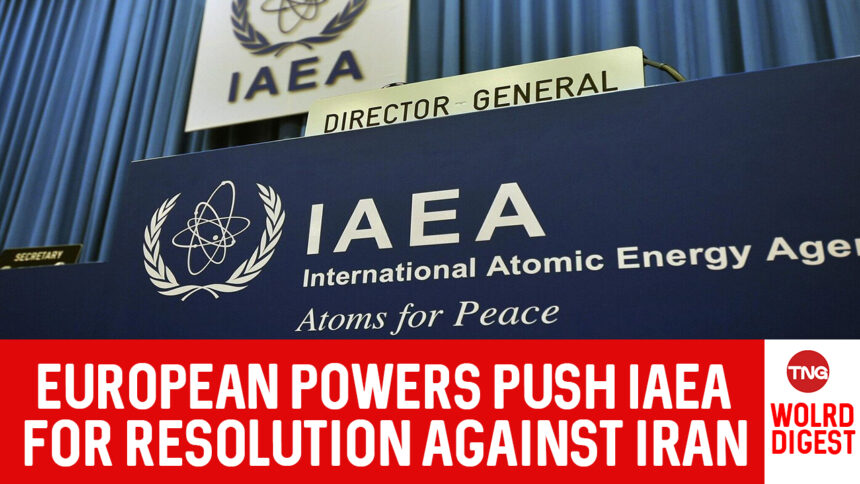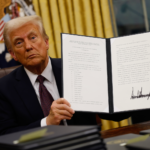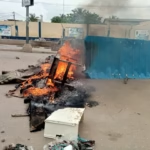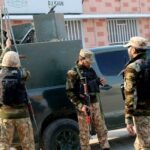Today, we are looking at something that could reshape international diplomacy: European Powers Push the IAEA for a fresh resolution Against Iran. Let’s digest what’s happening, why it matters, and how we got here.
As the world awaits the return of US President-elect Donald Trump, the European powers are pushing for a new Anti-Iran resolution at the International Atomic Energy Agency’s Board of Governors meeting next week to increase pressure on Tehran over its poor cooperation.
According to a Diplomat, the draft resolution seeks a comprehensive report from the International Atomic Energy Agency to increase insection over uranium traces allegedly found at undeclared Iranian sites and extend beyond routine quarterly reviews. The push echoes the ongoing European concerns about Iran’s nuclear program. Also, it aims to prompt a return to negotiations for new, albeit narrower, restrictions on Tehran’s atomic activities in exchange for limited sanctions relief.
How will this fresh resolution impact Iran? These resolutions will risk further diplomatic tension with Iran, as it has retaliated to the previous ones and other criticism at IAEA’s 35-nation Board of Governors and by stepping up its nuclear activities.
To get a clearer picture of what is happening here, we go back to 2015. Back then, Iran and six world powers—the U.S., U.K., France, Germany, Russia, and China- agreed to the Joint Comprehensive Plan of Action, or JCPOA. This agreement aimed to limit Tehran’s nuclear programs in exchange for lifting economic sanctions.
However, the unexpected happened in 2018. Under President Donald Trump’s first regime, the US withdrew from the deal and reinstated severe sanctions. Well, Iran did not also take it lightly; they responded by gradually reducing its commitments, enriching uranium beyond agreed limits, and restricting international inspections.
Fast forward to today. Despite ongoing negotiations to revive the JCPOA, Tehran’s nuclear program has advanced significantly. Now, the European powers, France, Germany, and the U.K., are pushing the International Atomic Energy Agency, or IAEA, for a fresh resolution to formally criticize Iran’s lack of cooperation.
What’s at stake? At a recent U.N. atomic watchdog’s board meeting, European diplomats expressed deep concerns over Iran’s nuclear transparency or lack thereof. They claim that Iran refused to provide credible explanations for uranium traces found at undeclared sites.
The push for a resolution could mark a turning point, escalating diplomatic pressure and possibly leading to more international sanctions. However, Iran has warned that such moves might jeopardize any chance of restoring the JCPOA. This time, the US has not been the driving force behind the new resolution. However, it is expected to back it, as happened with the last resolution against Iran. The European powers are discussing the new draft, known as the “E3,” with the outgoing US administration.
The International Atomic Energy Agency chief Rafael Grossi has not provided a compressive report on the resolution since he is involved in a delicate diplomacy, however, he stated that his approach is to try to solve issues now.
This confrontation has global implications. Beyond nuclear multiplication, it could impact oil prices, regional security, and relations between Iran and the West.
Grossi visited Tehran for the first time on Wednesday since Iran’s president, Masoud Pezeshkian, took office in July with the aim of advancing dialogue based on a joint statement. Highlighting the tension between Grossi’s aim and Western powers to compel Iran to discuss nuclear restrictions next year. According to a Senior Iranian official, Tehran’s reaction to a resolution could be a limitation on diplomatic and technical cooperation with the International Atomic Energy Agency
According to Iran’s president, Pezeshkian, Tehran will not be ignoring the US, its arch-foe and the need to handle its enemies with forbearance. The incoming US administration didn’t reveal any plans to hold Tehran after Trump takes over the Oval Office in January. Trump said during his campaign, “I don’t want to do damage to Iran but they cannot have nuclear weapons.”
As European powers and the International Atomic Energy Agency ramp up their pressure, all eyes are on Tehran. Will Iran cooperate, or are we heading for a new escalation phase? We will be following this story closely.















